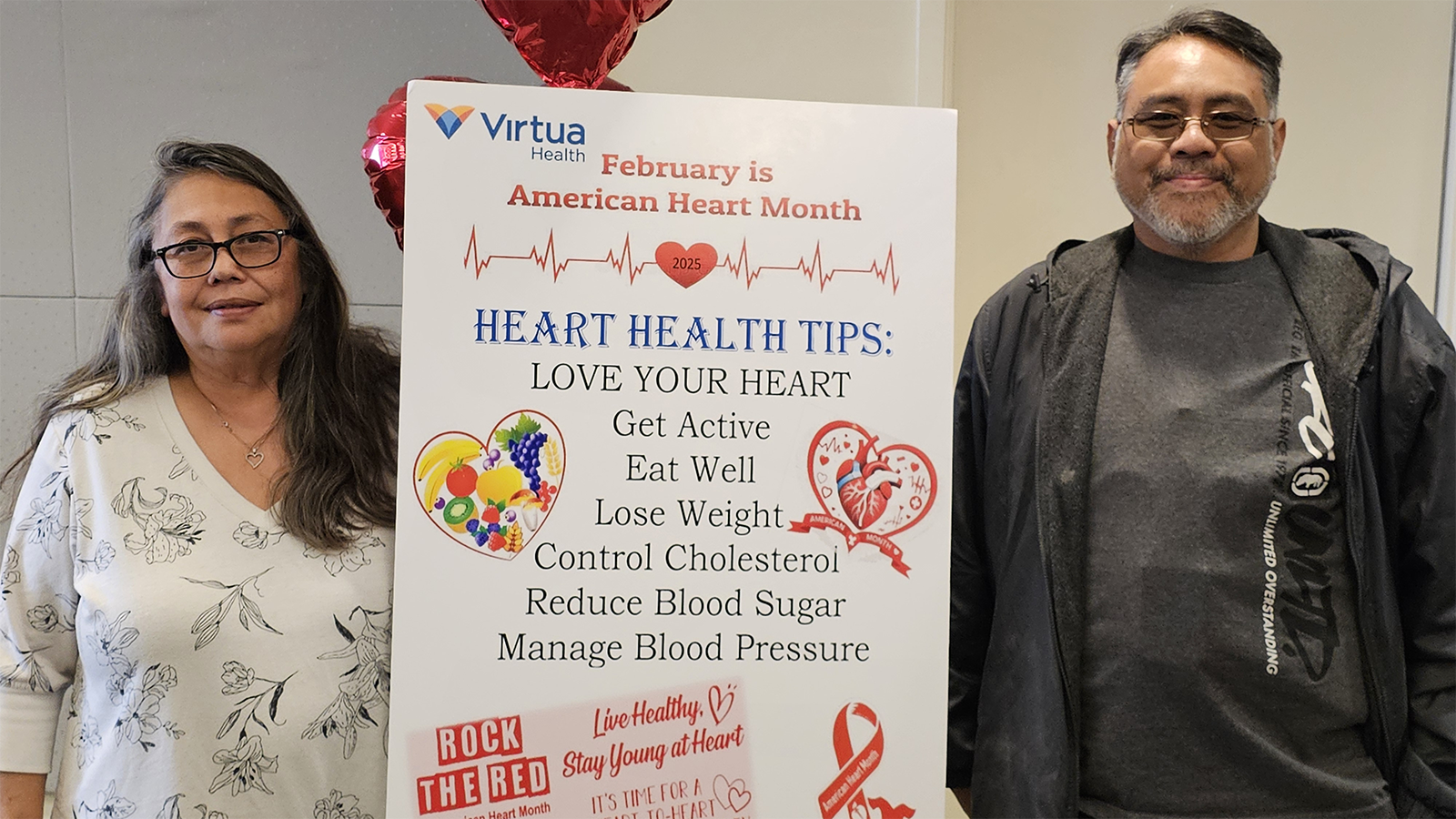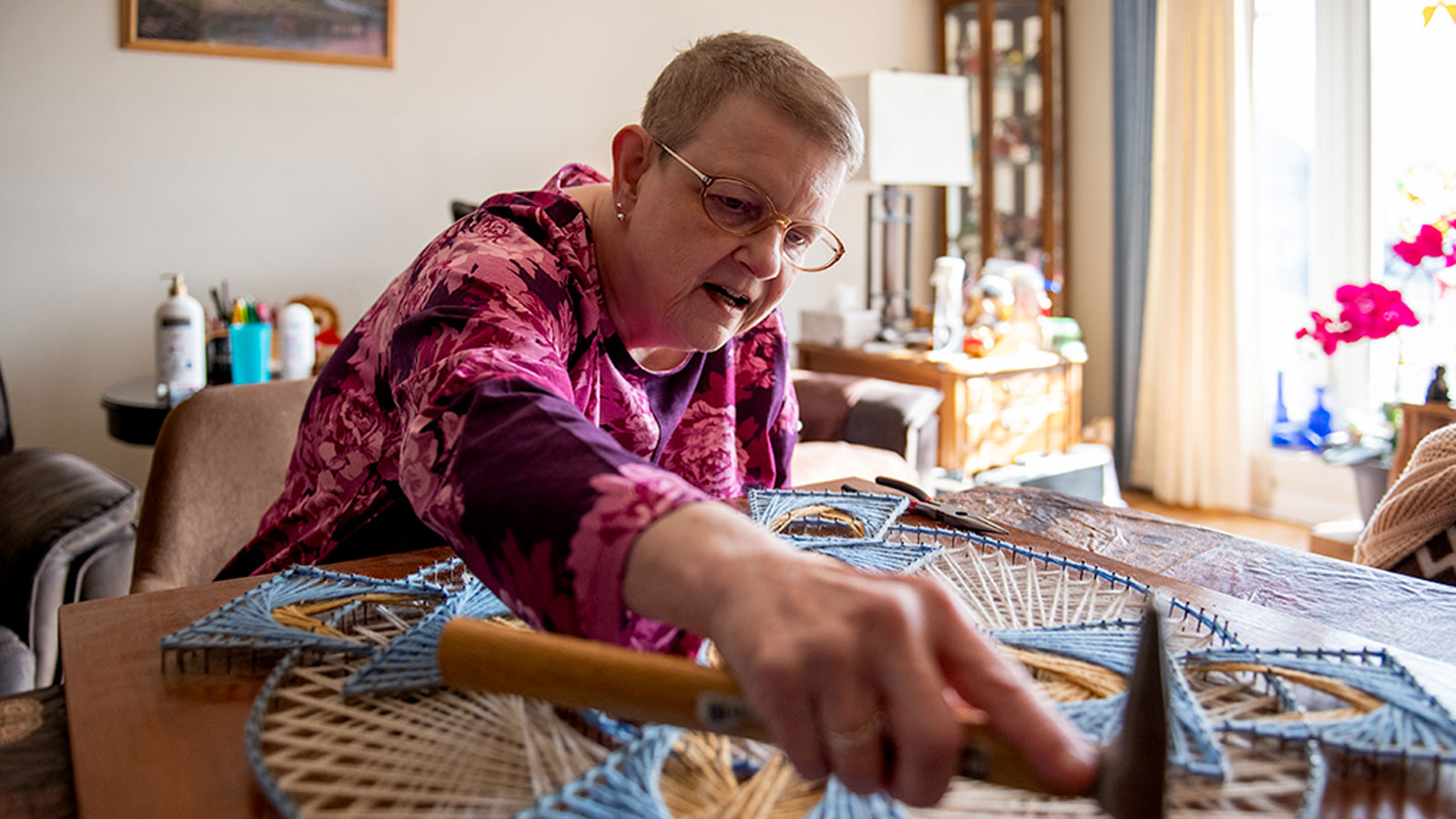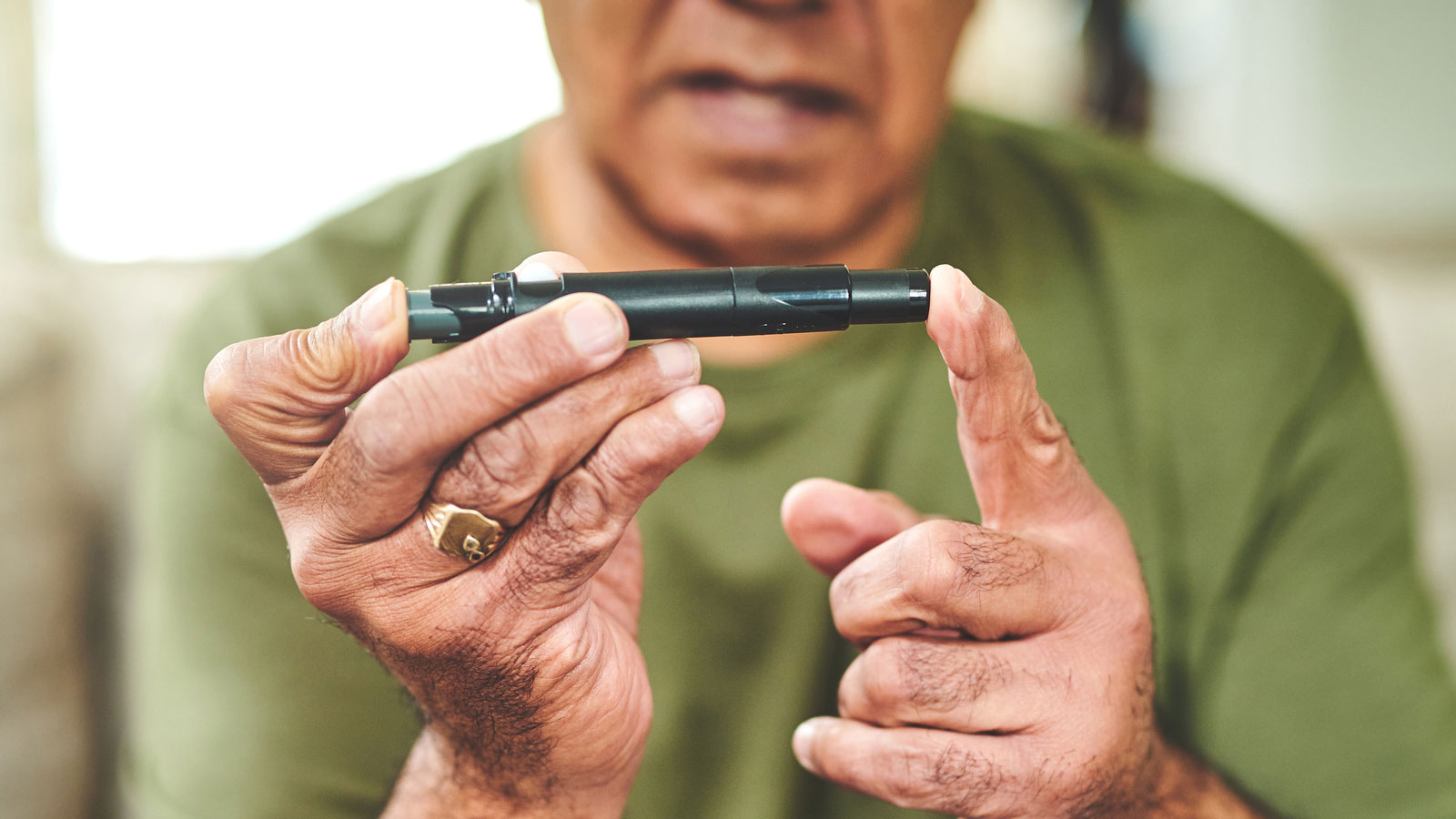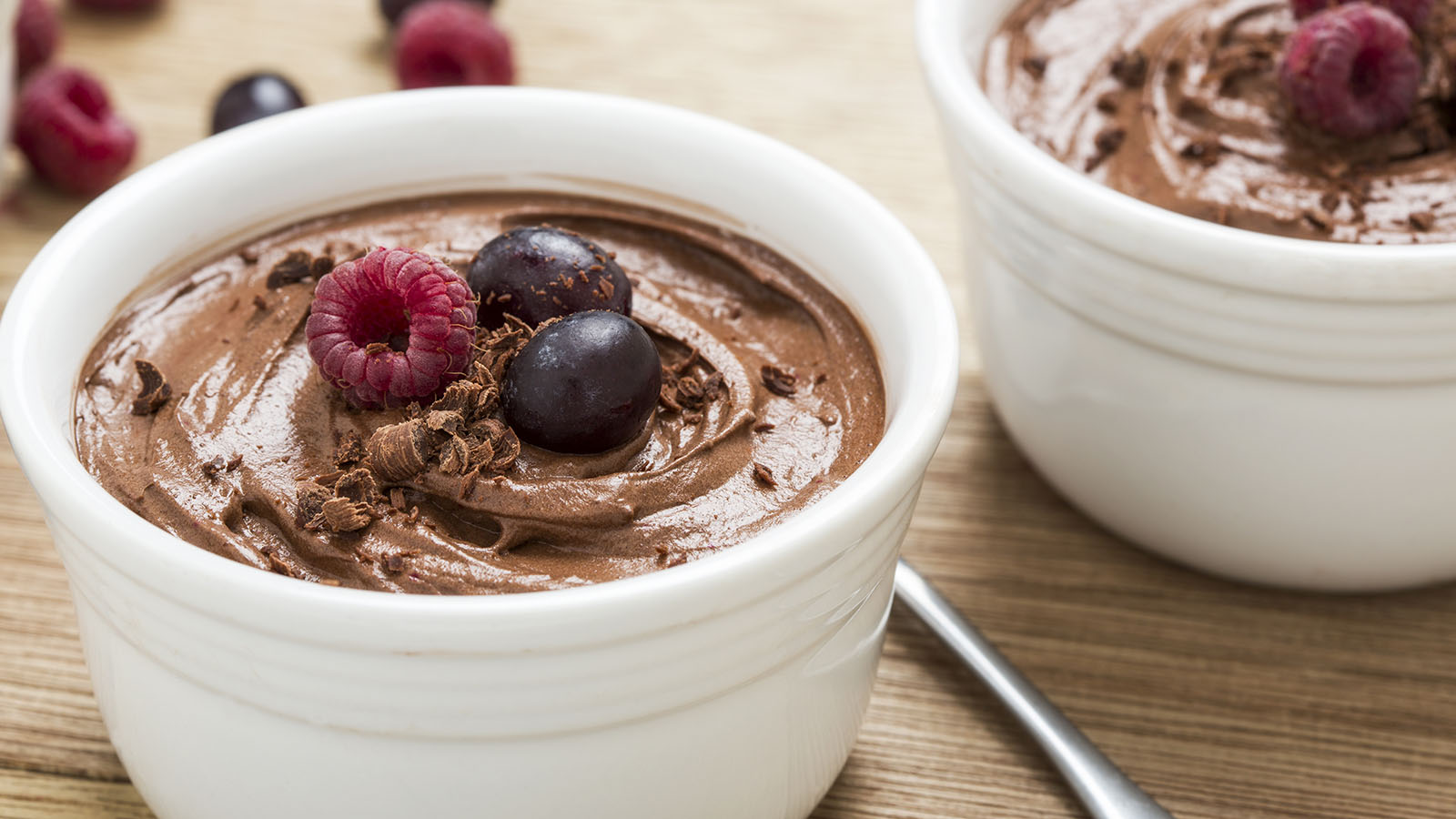How the Unique Stages of a Woman's Heart Affect Her Health
Heart disease is gender-blind, affecting women and men at equal rates. But the reasons why women get heart disease may be different from men.

By Rozy D. Dunham, MD, Cardiologist, Virtua Cardiology
Heart disease is gender-blind, affecting women and men at equal rates. Yet, while it’s the leading cause of death for both sexes in the U.S., the reasons why women get it—and what they experience—may be very different from men.
Understanding those differences is essential to the prevention of heart-related illnesses. From societal and lifestyle stressors to hormones, here are some of the factors that can affect a woman’s heart throughout her life—and what can be done to manage them.
How might pregnancy affect the heart?
When a woman reaches childbearing age, pregnancy and delivery pose cardiac risks to both mother and baby. Here are some things you should know about how this life stage could impact heart health:
- Pregnancy is a stressful time on a woman’s heart, with blood volume increasing by up to 40% to nourish a growing baby. With the heart pumping so much more blood, her heart rate increases and blood vessels dilate to get blood to the uterus. And with her breathing rate increasing as well, the heart is working harder than ever. These heart changes are a normal part of pregnancy but need to be carefully managed.
- Pregnancy-related high blood pressure—or other pre-existing heart conditions—can be intensely stressful on the heart when expecting and may require the services of a cardiologist and a maternal-fetal medicine physician.
While managing any heart condition during pregnancy can be concerning, serious heart issues can be addressed by working with a specialist. Raise any concerns with your provider to prioritize both your heart health and that of your baby.
What heart conditions can accompany motherhood?
Throughout motherhood, women often put themselves last, after her children, partner, and other loved ones. Juggling the demands of motherhood, career, and caring for others can create overwhelming stress, which could lead to the following effects:
- Stress raises the heart rate and blood pressure, the heart muscle pumps harder and needs more oxygen to pump the same amount of blood, and, in turn, weakens the heart in the long term.
- Stress cannot be managed unless a woman makes herself a priority, at least some of the time.
Here are some tried-and-true methods for managing these stressors:
- Women can blast stress by spending time with friends who make them laugh and improve their perspective on life’s challenges. Happiness contributes to a healthy heart.
- Exercise reduces stress and stress hormones like cortisol, which contributes to belly fat and conditions like metabolic syndrome, a precursor to type-2 diabetes.
- Eating nutritious meals with a balance of lean protein, abundant fruits and vegetables, and whole grains extend the benefits of exercise.
What happens with the heart during perimenopause, menopause, and beyond?
On the other side of the childbearing years as estrogen production slows down, cholesterol rates begin to increase.
- Menopause or perimenopause are critical times in a woman’s life for a serious conversation with her physician about controlling cholesterol with diet, exercise, and lifestyle changes, or some combination of drug therapy if necessary.
- Reducing cholesterol early may also reduce the potential for stroke and dementia related to cardiovascular disease. Although the gap is narrowing, women still outlive men by about five years. That means more time to develop heart disease.
- Women are considerably less active than they should be in later years, making them more prone to heart attacks and strokes.
Even small levels of activity make a difference, fending off depression, keeping blood vessels more flexible, and increasing the strength of the heart. Safe physical activity at any age is essential for good cardiac health.
Live wholehearted. Make an appointment with a Virtua cardiologist.
Virtua’s team of more than 100 cardiac experts provides comprehensive cardiac care, from medical cardiology to interventional procedures to advanced cardiac surgery. Schedule an appointment online with a Virtua cardiologist.
Want some bonus content? Sign up for our Good Vibes newsletter to receive the latest women's heart health news and class announcements.
There's So Much More to Explore
Discover expert insights, inspiring stories, health tips, and more by exploring the content below!

The Weird Pregnancy Side Effects No One Tells You About

10 Reasons to Schedule Your Colonoscopy Screening Today

At-Home Colon Cancer Tests vs. Colonoscopy: Which Screening Option Is Right for You?

10 Hand Washing Tips to Keep You Healthy All Year

How Exercise Helps Fight the Winter Blues and Improve Your Mood

8 Signs It's Time to See a Gastroenterologist

How the Unique Stages of a Woman's Heart Affect Her Health

Complex Aortic Surgery Provides Lu’Shell Hope for the Future

8 Stretching and Balancing Exercises for Older Adults

Cervical Cancer Screening Guidelines: What You Need to Know

Healthy Snack Recipes for Kids: Fast, Fun, and Full of Flavor

What To Eat Before And After Your Workout

HeartTalk Magazine

How to Spot the Early Signs and Symptoms of a Stroke

Healthy Takeout Made Easy: What to Order for Better Nutrition

How Weight-Loss Surgery Can Improve Diabetes, Heart Health, and More

6 Tips for an Easier Colonoscopy Prep

Knee Replacement Rehab: 7 Exercises to Restore Your Strength and Range of Motion

COPD vs. Asthma: Understanding the Difference in Symptoms

Are You Eating Too Much Salt? High-Sodium Foods to Watch For

Bioidentical Hormone Replacement Therapy Pellets: Relief for Menopause and Andropause Symptoms

Why Is Sex Painful During Pregnancy? Pelvic Congestion Syndrome Explained

COVID-19 Vaccines and Pregnancy: FAQs

Don't Drink Alcohol? You Could Still Get Fatty Liver Disease

What Is the Difference Between Palliative Care and Hospice Care?

How to Exercise Safely with Asthma: Tips, Triggers, and Rescue Inhaler Use

How to Relieve Bloating Fast: Simple Tips for Quick Comfort

How to Tell the Difference Between Cold, Flu, and COVID-19

Jill Travels From Delaware to South Jersey for Advanced Lung Care

4 Exercise Tips to Help You Reverse High Blood Pressure

From Exhaustion to Empowerment: Tracy's Hormone Replacement Therapy Success Story

Why on Earth Am I Always So Cold?

Timely Heart Care During a Heart Attack Helps Joe Feed the Community

Allegra Is Thriving With Crohn's Disease

The Best and Worst Foods for Acid Reflux

How to Manage IBS Symptoms and Feel in Control Again

5 Types of Lung Disease: Symptoms, Causes, and Prevention Tips

Foods to Enjoy and Avoid for GLP-1 Heartburn

Sexual Health FAQs: The Questions Everyone’s Too Embarrassed to Ask

3 Reasons Why Now's the Time to Find Relief From Varicose Veins

Baseball Coach Turns Male Breast Cancer Surprise into Personal Mission

The Brain Health Checklist: 11 Questions Everyone Should Ask

From Caregiver to Patient: Robotic Surgery Relieves Teresa's Knee Pain

How to Get and Stay Healthy This Fall

How to Reverse Prediabetes and Prevent Type 2 Diabetes

Young Breast-Cancer Survivor Has New Hope for Healthy Future

What To Know About Vaginal Discharge During Pregnancy

Is Cancer Hereditary? What You Need to Know About Your Genetic Risks

Tara's Story: From Debilitating Uterine Fibroid Pain to a Half-Marathon Medal

Is Your Post-Pregnancy Belly Bulge a Sign of Diastasis Recti?

Your Guide to Mammograms: When to Get Screened and What to Know

Healthy Weight Gain During Pregnancy: A Guide for Moms-to-Be

IBS and Alcohol: Can You Still Enjoy a Drink?

Focus on Mental Health Is Key Part of Andrew's Weight-Loss Journey

What You Need to Know About Epilepsy

'Feeling Joy Again': ECT Brain Stimulation Therapy Restores Ashley's Well-Being

Lifesaving Heart Care Creates a 'Bond That's Never Left Us'

How High Blood Pressure Affects Your Body

Not Just for Wrinkles: Botox Injections Promote Improved Bladder Control

Caring Maternity Team Transforms Harley's Pregnancy Crisis Into Lasting Memories

Robotic Hysterectomy, Trusted Care Help Bobbi Shine Again

How to Stay Cool and Prevent Heat Illness All Summer Long

What Happens to Your Body When You Don't Get Enough Sleep?

How to Have a Healthy Pregnancy if You're Overweight

4 Surprising Health Truths You Should Know

5 Interesting Facts About Your Heart

Is Low Sex Drive Normal? Revealing the Complex Causes of Low Libido in Women

Get to the Bottom of Blood Pressure Numbers

CABG Surgery: What Women Should Know About Heart Health and Healing

When to Take Action for a Stronger Heart

Stress Incontinence vs. Urge Incontinence: What's the Difference?

5 Key Facts About Proton Therapy for Cancer Treatment

Mood Swings vs. Mood Disorders: Know the Signs and Get Help
Are emotional ups and downs disrupting daily life? Learn common signs of mood disorders, and when to talk to a doctor about diagnosis and treatment options.

4 Foolproof Pelvic Floor Strengthening Exercises for Women

What to Expect During Perimenopause

Protect Yourself From Tick Bites and Lyme Disease

Groundbreaking Renal Denervation Procedure Controls a Lifetime of High Blood Pressure

Patient Story: LVAD Mechanical Pump Strengthens Michael's Heart Function

4 Ways to Stay Fit and Healthy on a Budget

6 Tips to Tame Your Spring Allergies

Do You Know the Signs and Symptoms of Uterine Fibroids?

How Are Uterine Fibroids Treated?

Can I Have Sex After a Hysterectomy?

Mitral Valve Surgery Keeps Yaneth Living the American Dream

What to Expect From a Robotic Hysterectomy

When You Need A Hysterectomy Know Your Options

Take Control of Incontinence, Prolapse, and Other Pelvic Floor Disorders

How Can I Prevent Bone Loss and Osteoporosis?

How Do You Manage the Side Effects of Weight-Loss Medications?

A Woman’s Four-Step Guide to Fight Back on Back Pain

What You Need To Know About Carpal Tunnel Syndrome

The Truth About Menopause, Weight Gain, and Belly Fat

Shedding Light on Lesser-Known Menopause Symptoms and Solutions

Debunking The Myths About Vaginal Dryness
Inside Look at Blood Vessels Aids PAD Treatment
Denise Davis: Pay Attention to Your Heart Health

What You Need To Know About Stroke Treatment

10 Smart Ways to Manage Your Diabetes

Signs You May Have Chronic Kidney Disease

5 Essential Winter Foot Care Tips When You Have Diabetes

Sweet Music: Trust, Teamwork Save Justin from Heart Attack

Advanced Minimally Invasive GYN Surgery Puts You at the Center of Care

Complex Heart Surgery Nets James a Lifelong Friend

Hepatitis C Kidney Transplant a Blessing For Lee Manns

7 Reasons Why You Want Your Surgeon to Be an Expert in Robotics

Colitis Symptoms Under Control, Jennifer Is ‘Living My Best Life’

How Do I Care for a Wound that Won't Heal?

Surprising Symptoms May Signal Stroke In Women

8 Key Steps to Better Blood Pressure Control

Five Back Pain Risk Factors That You Should Know

Is My Back Pain Normal, or Is It Spinal Stenosis?

Augmented-Reality Surgery Has Bobby Back on Stage, Rocking His New Hip

Robotic Hernia Surgery Combines Innovative Techniques With Faster Recovery Times

The HPV Vaccine: A Powerful Shield Against Cervical Cancer

How Does Breast Density Affect Your Mammogram?

Menopause: New Insights Into the Power of Hormone Replacement Therapy

How to Prevent and Treat Urinary Tract Infections

Signs You Should Get Treated For Vein Problems

One New Heart Valve Saves Two Lives in the Tritten Family

What You Need to Know About Heart Failure

6 Numbers Key to Keeping Your Heart Healthy
Lung Valve Surgery Relieves COPD, Emphysema Symptoms

Lung Screening, Robotic Technologies Get Pat Kicking Up Her Boots Again

Breast Cancer Diagnosis Inspires Catherine to Help Others

Jasmine’s On-Air and Pain-Free After Gallbladder Surgery

When Should I See a Doctor About My Knee Pain?

Quick Action Leads to Jesse's Recovery From Stroke

A Non-Athlete’s Guide to Shoulder Overuse Injuries
Shoulder problems aren’t limited to athletes. Virtua orthopedic surgeon Sean McMillan, DO, explains shoulder overuse injuries and prevention in this article.

Put Lower Back Pain Behind You With This Ten-Step Guide

Wide-Awake Hand Surgery Speeds Recovery, Puts Control in Patients' Hands

South Jersey Veteran Thrives After Cross-Country Kidney Donation

Five Mindfulness Tips That Can Help Heal Your Heart

3 Ways to Avoid Knee Pain

When Should I See a Doctor for My Hip Pain?

When Should I See a Doctor About My Shoulder Pain?

Is My Back Pain Normal, or Is It Sciatica?

Is My Back Pain Normal, or Is It a Herniated Disk?

When Is It Back Pain, and When Is It Something More?

Watchman Heart Device: a Technological Breakthrough for Blood Clot Prevention

Albert's Emergency Cardiac Surgery Is a 'Story of a Lifetime'

What Can I Do Right Now About My Aching Back?

How Do I Get Rid of This Back Pain for Good?

Love Your Heart: Essential Care Tips for Every Stage of Life

How Do I Measure My Blood Pressure at Home?

How Do I Improve My Cholesterol Levels?

3 Ways to Reduce Your Stroke Risk

Can Your Gut Health Affect Your Heart?

When Should I Be Worried About My Neck Pain?
Advanced Heart Failure Therapies Get Bernadine Back to Full Speed

Sarah Wins Back Her Health After Crohn's Disease Diagnosis

Overcoming Addiction, Philip Now Sees More Positive Side to Life
Firefighter's Successful Lung Cancer Care at Virtua
A Lung Screening Put Teresa Back in the Race

A Breast Self-Exam Saved Kristen's Life

How Sex Keeps You Healthy as You Age

Protect Your Child From HPV and Related Cancers

Why IUDs Might Be The Most Effective Birth Control

5 Things You're Too Embarrassed to Tell Your OBGYN

4 Not-So-Crazy Questions to Ask Your Doctor

Early Treatment is Best to Relieve Hemorrhoid Symptoms

The Top 10 Foods For A Healthy Diabetes Diet

Keeping the Beat: Advanced Heart Surgery for Aortic Aneurysm

Heart-Healthy Summer Recipe: Hummus and Veggies

4 Delicious Heart-Healthy Recipes Perfect for Summer

Heart Healthy Summer Recipe: Dessert Parfait

Heart-Healthy Summer Recipe: Pear and Walnut Salad

Heart-Healthy Summer Recipe: Terrific Turkey Burgers

Are You At Risk For Chronic Kidney Disease
Atrial Fibrillation and Stroke: What's the Connection?
Heart Tests Your Doctor May Order

Local Pastor Makes Kidney Health Mission of Ministry
Managing Pregnancy for Mothers With Heart Conditions

Heart Healthy Recipe: Basil Pesto Pasta With Seared Vegetables

Heart Healthy Recipe Chocolate Avocado Chia Pudding
Keep Your Heart Rhythm in Check With Your Smartwatch
Mind Your Meds for Blood Pressure Risks
Magic Pill for Heart Health? Cut 300 Calories a Day
3 Smart Ways to Boost Your Heart Health
3 Best Exercises For Heart Health

Get Your Heart Pumping With These 25 Workout Songs
Your Chest Pain: Heartburn, Heart Attack, or Something Else?
3 Heart Healthy Recipes to Win Valentines Day
How Work and Home Stress Can Affect You
Why Improving Your Health Is Going To The Dogs And Cats
Why Younger Women Need Start NOW To Safeguard Their Hearts From Heart Attacks
Can You Die of a Broken Heart?

What’s the Difference Between Type 1 and Type 2 Diabetes?
Mitral Valve Surgery Opens Doors for Improved Quality of Life
6 Healthy Habits to Start in Your 20s for Better Lifelong Health
Do You Have a Fatty Heart?
Get Pumped! Assist Devices Can Improve Heart Failure Symptoms
A Cardiologists Advice on Heart-saving Emergency Cardiac Care
Virtua Doctor’s Experience Is a Warning for All About COVID-19 and Strokes
You May Feel Fine, but Gregory Says "Don't Skip Your Medical Care"
In Sickness and in Health: Couples Often Share Heart Disease Risk
"Reduce Your Heart Disease Risk With a Plant-based Diet"
Hybrid Robotic Heart Surgery and Valve Replacement Restores Quality of Life
Can Marijuana Hurt Your Heart Health?
6 Tips for Restoring Your Heart Rhythm
Eat Smart for Your Heart
Cardiac Rehab: Strengthening Your Heart After Leaving the Hospital
Your Heart Needs A Good Nights Sleep
Are You at Risk for AAA—the Silent Killer?
The Cardio Oncology Team Protects Your Heart During Cancer Treatment
Get Relief From Painful Varicose Veins This Summer
Exercise Your Way to a Stronger Heart
Fish Oil: A Good Catch or a Scam?
My Heart Seems to Skip a Beat - Should I Be Worried?
Menu Planning? Try These 5 Heart-smart Substitutions

5 Health Risks Tied to Weight

Heart-Healthy Recipe: Maple Orange Salmon With Mango Salsa
Do Not Wait to Get Help When a Stroke or Heart Attack Strikes
4 Reasons Why Heart Patients Should Follow COVID 19 Safety Guidelines
Young Mother Finds Support for Anxiety After Rare Cardiac Event
Is Your Heart Age Older Than You?
Heart Healthy Recipe: Mediterranean Shrimp Salad

All for Bear: Dan Loses Weight to Be His Son’s Kidney Donor

Hyperbaric Wound Therapy Puts Joette Back in Motion

Robotic Hernia Repair Renews David's Active Lifestyle

